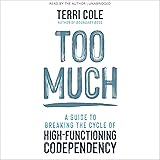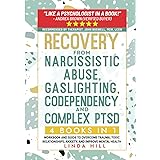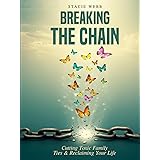Recent studies indicate a significant global concern regarding our digital habits, with many individuals admitting to feeling overwhelmed or trapped by their online presence. As the video above compellingly asks, “Are you an addict too?” It’s a question worth pondering, as our connection to the internet, while beneficial, can easily spiral into internet addiction – a growing mental health challenge.
Understanding Internet Addiction: More Than Just Screen Time
The term “internet addiction” might sound extreme, but its effects are profoundly real. It’s not simply about spending a lot of time online; it’s about the compulsive and uncontrolled use of the internet that significantly interferes with daily life. This digital dependence can manifest in various forms, from endless social media scrolling to obsessive online shopping or even severe gaming disorders.
The video highlights how effortlessly we get lost online. Our brains play a crucial role in this process. Every ‘like’ on a post, every successful online purchase, or every notification triggers a release of dopamine, a neurotransmitter associated with pleasure and reward. This creates a powerful feedback loop, driving us to seek out these digital validations repeatedly. Eventually, this constant stimulation can rewire our brain’s reward system, leading to a craving for more online engagement, much like other behavioral addictions.
The Brain’s Reward System and Digital Dependence
When you achieve something online, like winning a game or receiving positive comments, your brain enters a “celebration mode,” as the video describes. This isn’t just a fleeting feeling; it’s a powerful neurochemical response. The dopamine rush reinforces the behavior, making you more likely to repeat it. Over time, your brain adapts, needing more intense or frequent online activities to achieve the same level of satisfaction. This cycle is a core mechanism behind the development of digital dependence.
This mechanism is particularly potent because the internet offers instant gratification and an endless stream of novel content. Unlike real-world rewards that might take time and effort, online rewards are readily available, creating a powerful pull that can be difficult to resist. Understanding this brain-level interaction is key to comprehending the depth of internet addiction.
Recognizing the Signs and Consequences of Excessive Screen Time
The consequences of internet addiction extend far beyond just wasted hours. As mentioned in the video, serious social problems and even physical dependence can arise. Individuals might find their real-world relationships deteriorating as they prioritize online interactions. Neglecting work, school, or personal hygiene also become common indicators.
Physical dependence can manifest as sleep disturbances, eye strain, carpal tunnel syndrome, and even poor posture. Mentally, the constant overstimulation and comparison with curated online lives can lead to heightened anxiety, stress, and a deeper sense of isolation, often paired with depression. These symptoms collectively paint a picture of how pervasive and damaging uncontrolled online habits can become.
Are You Overwhelmed and Trapped Online?
It’s important to reflect on your own digital habits. Do you often feel a compulsive urge to check your phone or computer, even when you don’t intend to? Are you irritable or anxious when offline? These are potential red flags. The feeling of being “overwhelmed and trapped online” is a common sentiment among those grappling with excessive screen time.
Consider the impact on your daily life. Are you missing deadlines, canceling plans with friends, or struggling to concentrate on offline tasks because of online distractions? These behavioral changes indicate that your internet usage might be moving beyond healthy engagement into problematic territory. Self-awareness is the first step towards regaining control.
Practical Strategies for Managing Digital Dependence
Regaining control over your digital life is achievable with conscious effort and practical strategies. The video suggests several effective approaches, starting with self-monitoring. Tracking your overall screen time helps you understand your habits and identify areas for change.
Once you know where your time is spent, you can “nudge yourself” toward healthier behaviors. Several apps are designed to help you gain control, offering features like usage tracking, time limits for specific apps, and even blocking distracting websites during focused work periods. These tools can be invaluable allies in your journey to reduce digital dependence.
- Monitor Your Screen Time: Use built-in phone features or third-party apps to track how much time you spend on each application and website. This data provides a clear picture of your usage patterns.
- Identify Triggers: Understand why you go online. Is it boredom, stress, loneliness, or a habit? Knowing your triggers helps you develop alternative coping mechanisms.
- Set Realistic Limits: Don’t aim for a complete digital detox overnight. Instead, set achievable daily or weekly limits for non-essential online activities.
- Create “No-Phone” Zones/Times: Designate certain areas (e.g., bedroom, dining table) or times (e.g., an hour before bed, during meals) as device-free. This promotes mindfulness and strengthens real-world connections.
- Engage in Offline Hobbies: Actively seek out and participate in activities that don’t involve screens. Rediscover old hobbies or try new ones to fill the void left by reduced screen time.
- Disable Non-Essential Notifications: Reduce constant interruptions by turning off notifications for social media, games, and other non-critical apps. This lessens the urge to constantly check your device.
Seeking Help and Building Support Networks
For some, the grip of internet addiction is too strong to overcome alone. If your online habits are significantly affecting your life, professional psychological help may be necessary. Therapists specializing in behavioral addictions can provide tailored strategies and support to address the underlying issues driving your internet addiction.
Additionally, connecting with online groups, such as IT-AA (Internet and Technology Addicts Anonymous), offers a supportive community. These groups provide a safe space to share experiences, gain insights, and find accountability partners. Peer support can be a powerful motivator and a vital resource for navigating the challenges of reducing digital dependence and fostering a healthier relationship with technology. Remember, you don’t have to face this growing problem alone.











